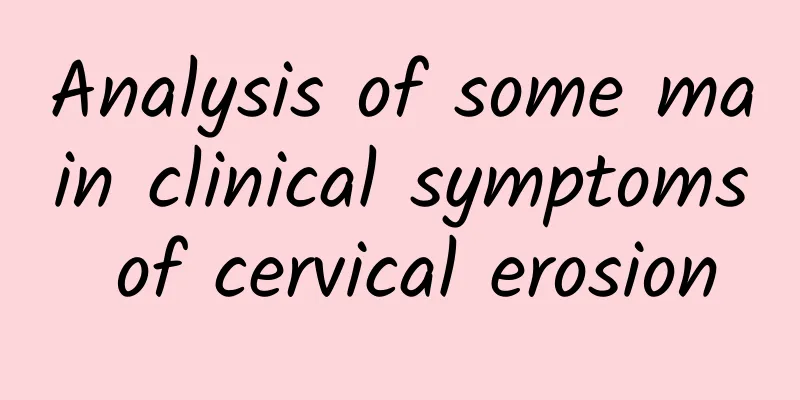The harm of medical abortion to the body

|
At present, due to inadequate contraceptive measures, more and more people are suffering from accidental pregnancies. Many women who do not want children will go to the hospital for abortion. In fact, women who have undergone medical abortion know the harm of medical abortion to the body. If you are not careful during medical abortion, a momentary negligence will cause some health problems. So what are the harms of medical abortion to the body? Let us learn about it together. 1. Cause infection: After women take anti-pregnancy drugs, the embryonic sac tissue in the uterine cavity can be discharged on the same day. Sometimes the pregnancy tissue is not fully discharged, the uterine membrane is not restored well, and the vaginal bleeding lasts for a long time, which can last for 2 to 3 weeks or even 1 to 2 months. Long-term chronic blood loss can cause anemia and reduce the body's resistance. At this time, bacteria often go back through the vagina and cause endometrial inflammation. 2. Incomplete abortion: Some women suffer incomplete miscarriage after taking the medicine, which affects uterine contraction and the repair of endometrial wounds, causing a significant increase in vaginal bleeding, which is 2 to 3 times more than the normal menstrual volume. In severe cases, heavy bleeding may occur, leading to anemia and shock, requiring blood transfusion and emergency surgery to curettage and stop the bleeding. 3. Impact on normal pregnancy: Unmarried women who have repeated pregnancies and miscarriages can have their endometrium damaged repeatedly. Once they have a normal pregnancy, they are more likely to have placenta previa, which can cause heavy bleeding before delivery. Some women also have habitual miscarriages due to multiple artificial abortions. 4. Menstrual disorders: Anti-pregnancy drugs can inhibit the function of the ovaries, affect the growth and development of follicles and even ovulation. After medical abortion, some women may experience menstrual disorders, which are manifested as shortened or prolonged menstrual cycles and increased menstrual flow. |
<<: What are the dangers of medical abortion?
Recommend
What are the causes of irregular menstruation in women? How should women with irregular menstruation be treated?
Causes and treatment of irregular menstruation So...
The more obvious symptoms of pelvic inflammatory disease are usually lower abdominal pain.
The more obvious manifestation of pelvic inflamma...
Chocolate cyst rupture signs
The signs of chocolate cyst rupture usually inclu...
Want to lose weight in your heart and enjoy it with your mouth? Every sentence hits the nail on the head, giving you the cruelest wake-up call for those who keep shouting about losing weight.
Being good-looking at 20 is luck, but being good-...
6 daily health care methods for pelvic effusion How to treat pelvic effusion
6 daily health care methods for pelvic effusion H...
Get tired easily? Drink chicken essence to replenish physical strength and balance good physical condition
Under the scorching sun, sweating through endless...
Causes of irregular menstruation Does obesity also cause irregular menstruation?
Gynecological diseases have always been something...
Common clinical symptoms of acute ectopic pregnancy
What are the common clinical symptoms of acute ec...
What are the symptoms of pelvic endometriosis
What are the symptoms of pelvic endometriosis? Wh...
Where to go for treatment of pelvic peritonitis
To determine which hospital is best for treating ...
Is Mirena good for treating adenomyosis?
Adenomyosis is a common gynecological disease. Th...
Experts introduce the clinical symptoms of uterine fibroids
Uterine fibroids are a common gynecological tumor...
What should you pay attention to in your diet after miscarriage? Eat more of these 3 types of food
After an abortion, if female friends want to reco...
5 tips for Pepper Potts to stay in shape
The movie "Iron Man 3" was released in ...
What are the hazards of cervicitis in women? Check out the hazards of 5 types of cervicitis
Be careful, don’t let cervical inflammation rob y...









